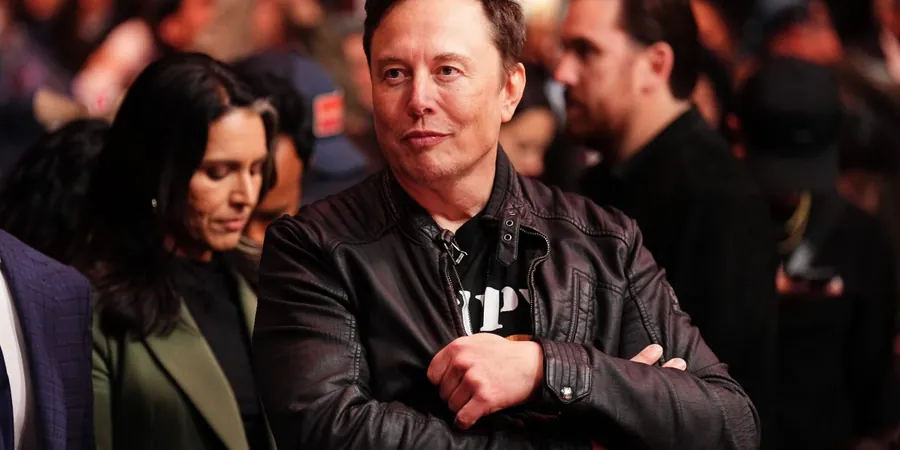
Elon Musk Launches Bold Initiative: Upload Your Medical Data to X for AI Analysis!
2024-11-21
Author: Jessica Wong
Introduction
In a provocative move aimed at revolutionizing medical diagnostics, Elon Musk recently urged users on X (formerly Twitter) to upload their medical images—such as x-rays, PET scans, and MRIs—directly to his AI company Grok for analysis. Musk believes this initiative could accelerate the development of the AI’s capabilities, stating, "This is still early stage, but it is already quite accurate and will become extremely good. Let us know where Grok gets it right or needs work."
Mixed Results
However, the results so far have been mixed. While some users reported Grok’s success in analyzing blood test results and identifying cases of breast cancer, the AI has also faced serious criticism from the medical community. Notably, physicians pointed out instances where Grok misdiagnosed medical conditions, such as confusing a classic tuberculosis case with spinal issues and erroneously identifying a benign breast cyst in a mammogram as testicles.
Musk's Background and Other Initiatives
Musk has been involved in the intersection of healthcare and AI for several years now, most notably launching Neuralink in 2022—a company focused on developing brain-computer interfaces. Earlier this year, Musk claimed Neuralink succeeded in allowing a user to control a computer mouse through brain activity. Concurrently, his tech startup xAI raised a staggering $6 billion in funding, which could facilitate the further development of health-related technologies.
Expert Opinions
Despite the advancements, experts express skepticism regarding Grok's current capabilities and the ethical implications of Musk’s initiative. Dr. Laura Heacock, an associate professor at NYU Langone Health, remarked that while the technical ability to analyze medical imaging exists, the commitment to invest the necessary resources is still in question. Currently, traditional AI methods outperform Grok in medical imaging analyses.
Concerns Over Data Privacy
Moreover, industry observers have raised concerns about the methodology behind Grok’s data gathering. Ryan Tarzy, CEO of Avandra Imaging, highlighted that sourcing medical data from social media—which lacks protections found in formal medical settings—exposes participants to privacy risks. Unlike secured healthcare databases protected by regulations like HIPAA, data shared on X can be widely disseminated without stringent privacy safeguards.
The Risks of Sharing Medical Data
"Personal health information is often embedded in medical images, which raises the concerning possibility that user identities could be inadvertently shared," Tarzy explained. Users may unwittingly expose their private health information by participating in this initiative, given that sensitive data could easily be tied back to individuals through images.
Ethical and Privacy Challenges
Matthew McCoy, an assistant professor of medical ethics and health policy at the University of Pennsylvania, stated that the full extent of privacy dangers remains unclear, as X's internal privacy measures may not be transparent to the public. Participants in this initiative must therefore weigh the potential benefits against significant privacy risks.
Conclusion
As the landscape of AI in healthcare continues to evolve, it remains to be seen how Grok will navigate these challenges while preserving user privacy and ensuring diagnostic accuracy. Musk's ambitious vision to integrate AI into healthcare is garnering attention, but it also raises pressing questions about ethical practices in data utilization and patient confidentiality. Will this revolutionary approach unlock the future of medical diagnostics, or will it lead to unforeseen problems? Only time will tell.


 Brasil (PT)
Brasil (PT)
 Canada (EN)
Canada (EN)
 Chile (ES)
Chile (ES)
 España (ES)
España (ES)
 France (FR)
France (FR)
 Hong Kong (EN)
Hong Kong (EN)
 Italia (IT)
Italia (IT)
 日本 (JA)
日本 (JA)
 Magyarország (HU)
Magyarország (HU)
 Norge (NO)
Norge (NO)
 Polska (PL)
Polska (PL)
 Schweiz (DE)
Schweiz (DE)
 Singapore (EN)
Singapore (EN)
 Sverige (SV)
Sverige (SV)
 Suomi (FI)
Suomi (FI)
 Türkiye (TR)
Türkiye (TR)